detail profile pierre repp
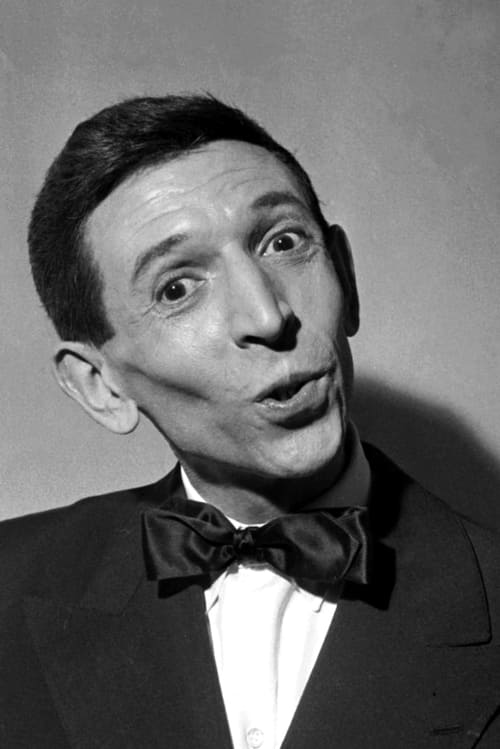
Pierre Repp
Pierre Bouclet
atau dikenal sebagai
Riwayat Hidup
Pierre Repp (5 November 1909 in Saint-Pol-sur-Ternoise, France – 1 November 1986 in Plessis-Trévise, France) was a French humorist and actor.
His real name was Pierre Alphonse Léon Frédéric Bouclet.
On 14 August 1930, he married Ferdinande Alice Andrée Bouclet in Lille.
He is famous in France for his unique comic talent.
He used to simulate stuttering while talking, in a humoristic way, trying to pronounce some words and finally replacing them by others.
In a famous French sketch, "Les crêpes", he explained the recipe that way, with sentences like this one: "Then you add some mamerlade, oh sorry ! Some marlamade.
.
.
Uh! Me, I pour some chocolate".
Pierre Repp appeared in many theatre plays and TV shows, but mainly in music-hall and cabarets in Paris or on tour.
Pierre Repp has his place in the French cinéma story due to many "third-roles" in about forty films.
Source: Article "Pierre Repp" from Wikipedia in English, licensed under CC-BY-SA 3.
0.
Info Pribadi
Peran Yang Di Mainkan Pierre Repp
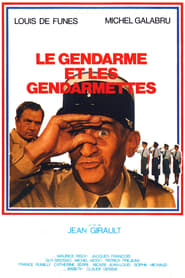 Cruchots police office moves into a...
Cruchots police office moves into a...The Gendarme and the Gendarmettes 1982
Cruchot's police office moves into a new building. They do not only get high tech equipment, but also four young female police officers to educate. All of them scramble to work with them -- and cause pure chaos while being distracted by the fine ladies. Then they get into real trouble when one after the other of their female colleagues is kidnapped.
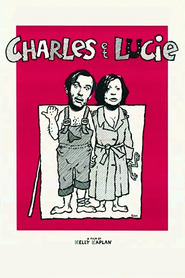 An old and poor couple Charles...
An old and poor couple Charles...Charles and Lucie 1979
An old and poor couple, Charles and Lucie, scrape by working as a concierge and an untalented antique dealer, respectively. But one day, their dreary daily routine is disrupted by the surprising news that they have inherited a luxurious house in the South of France.
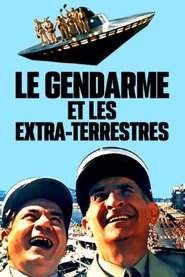 The bungling inspector Cruchot finds himself...
The bungling inspector Cruchot finds himself...The Gendarme and the Creatures from Outer Space 1979
The bungling inspector Cruchot finds himself trying to save the residents of St. Tropez from some oil-drinking humanoid aliens. The only way to tell the aliens from the real people, besides their constant thirst for oil-products, is that they sound like empty garbage cans when you touch them. Chaos is ahead.
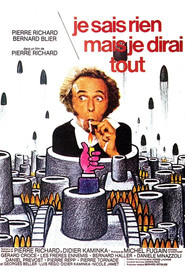 Pierre GastiLeroy is the son of...
Pierre GastiLeroy is the son of...I Don't Know Much, But I'll Say Everything 1973
Pierre Gastié-Leroy is the son of a wealthy director of a factory of weapon manufacturing. Despite his parents, two generous uncles and a bishop godfather who try to inculcate him the rigid values of his social level, Pierre is a dreamer, antimilitaristic, social educator who dreams of saving three thugs, his "little guys" at the limit of delinquency. After several resounding failures that sent him to prison, Pierre is ordered by his father to join his factory to direct the social service. Tired of the venality of his father and the foolishness of the "little guys", Pierre hires them at the factory...
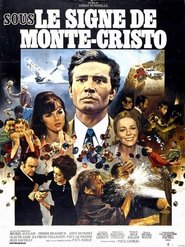 Edmond Dants who was active in...
Edmond Dants who was active in...Sous le signe de Monte-Cristo 1968
Edmond Dantès, who was active in the resistance against the Nazis, is accused for being a Nazi collaborator and is imprisoned in the fortress of Sisteron.
 A unique black comedy consisting of...
A unique black comedy consisting of...Black Humor 1965
A unique black comedy consisting of three episodes on the same theme: death. In a circus, trapeze artist Wilma is going to get rid of a rival during a "magic act" performed by an amateur. A strange widow comes to inquire about the services of a new marriage agency. A peasant woman tormented by a bug in her ear barges into a healer's house.
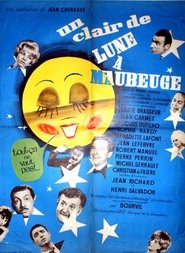 Paul a friendly Parisian cab driver...
Paul a friendly Parisian cab driver...Un clair de Lune à Maubeuge 1962
Paul, a friendly Parisian cab driver, has two loves: music and his fiancée Virginie. After graduating from the Conservatoire with a first prize, he lives on hope, offering his classical works to publishers. One day, while driving customers to the races, he plays a "toquard": Maubeuge, who wins. With his friends, he celebrates the event and, for dessert, composes a song for the occasion: "Tout ça ne vaut pas un clair de lune à Maubeuge". Monique, a secretary at the radio station and one of the guests, had a record made of the tape recording. And this record, following a mistake, was broadcast on a religious music program. It's a runaway success: for Paul, it's fame and fortune. which he had obviously coveted, but more with his symphonies, opera and sonatas. No matter, the "Clair de lune à Maubeuge" (Moonlight in Maubeuge) allows two happily engaged couples to become happily married.
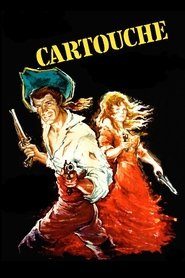 In the 18th century Louis de...
In the 18th century Louis de...Cartouche 1962
In the 18th century, Louis de Bourguignon is working with the Malichot's gang, but their ways are too 'unethical' for him. He creates his own band, acting under the name of Cartouche, making audacious robberies of the rich people, and even distributing the takings with the poor. Thus, cartouche attracts the people's sympathies, Venus's love, and hate from the Police and Malichot... Cartouche can escape all the traps they set at him - except the entrapments of love. Eventually, he will be saved by a woman, at her own cost.
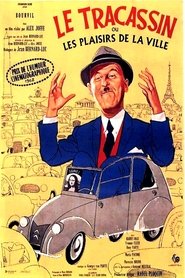 Andr Loriot works for Dr Clairac...
Andr Loriot works for Dr Clairac...The Busybody 1961
André Loriot works for Dr Clairac in a laboratory producing euphoric pills. He searches in vain for an apartment where he can settle down and start a family with the woman who loves him, Juliette. To motivate himself and cope with the setbacks he encounters, he decides to swallow an excessive dose of euphoriants.
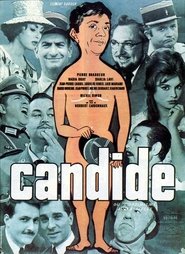 Charming and innocent Candide is vigorously...
Charming and innocent Candide is vigorously...Candide or The Optimism in the 20th Century 1960
Charming and innocent, Candide is vigorously chased away by the Baron, for his close encounters with the pretty Cunégonde. World War II breaks out, and when he is drafted and taken prisoner, he is forced to take German nationality and ends up guarding the camp where he was imprisoned. He crossed into Switzerland, but as he had no bank account, he was incarcerated for eight days for trespassing. Hunted by the Gestapo, he kills two men to free Cunégonde, who has finally been found. They both flee to Argentina, and their world tour begins. In Paris, Moscow, New York, Borneo and Alexandria. They try to follow Dr. Pangloss' optimistic rule of life. Tossed about, separated, they find themselves grown old and wiser, thinking only of cultivating their garden on the shores of the Mediterranean.
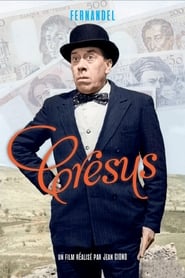 Jules is a shepherd who lives...
Jules is a shepherd who lives...Croesus 1960
Jules is a shepherd who lives a humble and solitary life in rural Provence. From time to time, he is visited by a lonely widow, Fine, who longs to be his wife. One day, Jules comes across an unexploded bomb lying on the ground in open countryside. After a few foolhardy attempts to set the bomb off, Jules makes a surprising discovery. It is filled with thousands of bank notes…
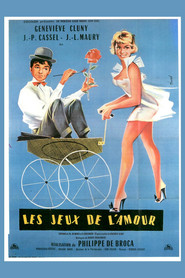 Victor JeanPierre Cassel and Suzanne Genevieve...
Victor JeanPierre Cassel and Suzanne Genevieve...The Love Game 1960
Victor (Jean-Pierre Cassel) and Suzanne (Genevieve Cluny) are a couple at odds about commitment in this light, fast-paced comedy-drama by Philippe de Broca. Suzanne needs more reassurance from Victor about the future of their relationship. He is a painter with an inspired creative side who finds it difficult to understand Suzanne's point of view. They are happy together; what is the problem? So when a friend comes into the picture and proposes to Suzanne, Victor suddenly realizes that Suzanne was right. Without a formal commitment, the suddenly insecure man does not like the view from the opposite shore.
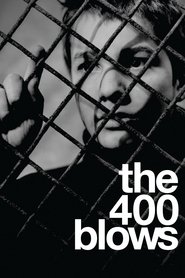 For young Parisian boy Antoine Doinel...
For young Parisian boy Antoine Doinel...The 400 Blows 1959
For young Parisian boy Antoine Doinel, life is one difficult situation after another. Surrounded by inconsiderate adults, including his neglectful parents, Antoine spends his days with his best friend, Rene, trying to plan for a better life. When one of their schemes goes awry, Antoine ends up in trouble with the law, leading to even more conflicts with unsympathetic authority figures.
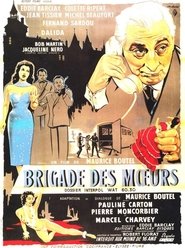 A journalist and a police commissioner...
A journalist and a police commissioner...Vice Squad 1959
A journalist and a police commissioner join forces to smash a white slavery network operating in the Middle East. The cabaret run by Clovis where Dalida sings is quickly spotted, as is a marriage agency run by Madame Irma, offering semblance of guarantees. Clues without proof. The journalist's fiancée agrees to play the game set up by the superintendent. The network is dismantled.
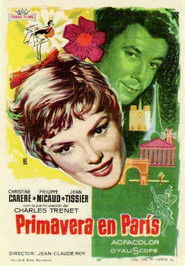 On her way to Paris Gisle...
On her way to Paris Gisle...Springtime in Paris 1957
On her way to Paris, Gisèle meets a young motorist who offers to be her guide. Gisèle, suspicious, refuses and disappears. But Pierre finds her and takes her to dinner at Saint-Germain-des-Prés. On the other hand, Gisèle, out of jealousy, goes off on her own to visit "Paris by Night", showing us some of the attractions of the "Moulin Rouge", "Naturistes", "Rock and Roll", etc., etc., etc. Pierre pursues her and eventually discovers her hotel. The next day, he takes her for a walk around Paris. They dine at an inn where a supposed car breakdown forces them to spend the night. There was only one room, but the virtuous Gisèle locked Pierre in the bathroom. All ends in the most honest engagement in the world.
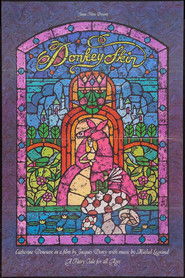 A fairy godmother helps a princess...
A fairy godmother helps a princess...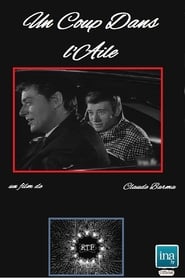
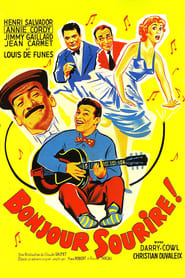 A Prime Minister kidnaps three comedians...
A Prime Minister kidnaps three comedians...